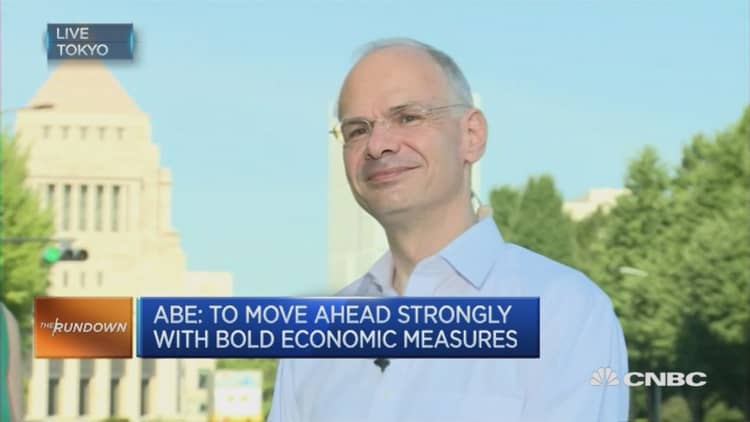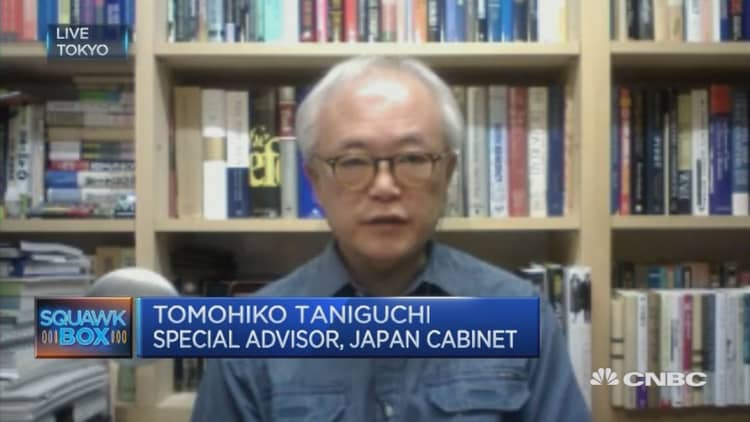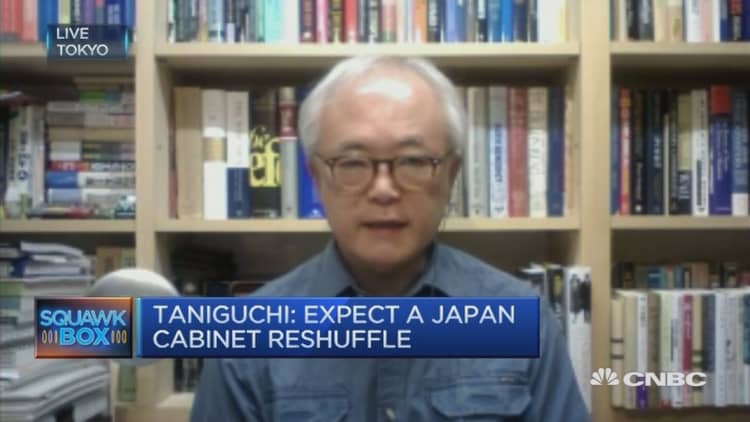


The impressive performance of Japan's ruling coalition government at parliamentary elections on Sunday is a reminder to Prime Minister Abe that his first and foremost priority remained the economy, not political reforms.
Abenomics, the set of radical economic policies designed to end Japan's deflation funk, has experienced a number of setbacks in its three-and-a-half-year existence, but the ruling coalition party still managed to secure 70 out of the 121 seats up for grabs in the upper house at Sunday's vote. That means the Liberal Democratic Party (LDP) and the New Komeito Party now have a majority in both houses of parliament.
Voters endorsed Abenomics despite widespread dissatisfaction with controversial legislation that Abe intends to execute. The PM wants to revise the nation's post-war pacifist constitution to enable military action under the doctrine of collective self-defense amid China's growing military clout. Having now obtained a parliamentary majority, Abe could officially start the constitutional amendment process, set to be one of his key legacies, alongside Abenomics.
But unless the economy improved, Abe could not afford to push through with any controversial reforms, Martin Schulz, a senior economist at Fujitsu Research Institute, told CNBC's "The Rundown." The leader first needed to deliver on his economic promises to voters and be as expansionary as possible, which meant unveiling robust fiscal stimulus to shore up spending and push consumer prices higher, he said.
"Most [voters] are concerned about economic revival and social security reform, and that there is very little public appetite for constitutional reform. It is unlikely that the Abenomics policies and the economic policy agenda will be abandoned in exchange for constitutional reform after the upper house election," summed up Societe Generale in a Monday note.
The government plans to roll out a stimulus package that could exceed $99 billion, Reuters reported on Sunday.
Eisuke Sakakibara, a former vice finance minister and currently a professor at Aoyama Gakuin University, said he expected Abe to soon announce a supplementary budget worth $48.7 billion. "Then, he will eventually move to change the constitution. Because he needs to consult the opposition party, any constitutional reform will be done slowly and carefully."
Despite aggressive rounds of monetary easing, the world's third-largest economy has been stumbling in terms of private consumption. The price outlook further worsened last week when the quarterly Tankan business sentiment survey indicated Japanese companies had lowered their inflation forecasts for the fourth consecutive time.
Labor market reforms should be one of the key policy items on Abe's post-election agenda, not drawn-out constitutional revisions, amid the economy's secular stagnation, echoed Tomohiko Taniguchi, a special advisor to the PM's Cabinet and a professor at Keio University.
"Reforming hiring practices is more important because the economy must be more inclusive for women....a variety of working practices must be part of the economy. It has to take place sooner rather than later."
Taniguchi attributed Abe's sweeping victory on Sunday to an absence of real opposition, not faith in Abenomics. The opposition essentially stopped talking about their economic policies as the campaign drew on, leaving voters with a lack of alternatives to Abenomics, he explained.
Stimulus aside, a cabinet reshuffle is also expected to be high on Abe's post-election agenda. Reuters reported that finance minister Taro Aso and justice minister Mitsuhide Iwaki may be ousted, but no official details have been given so far.
While monetary support is also expected to accompany Abe's renewed fiscal drive, the Bank of Japan will likely await the government's program before announcing any new action of its own, observed Vishnu Varathan, Mizuho Bank's senior economist.

